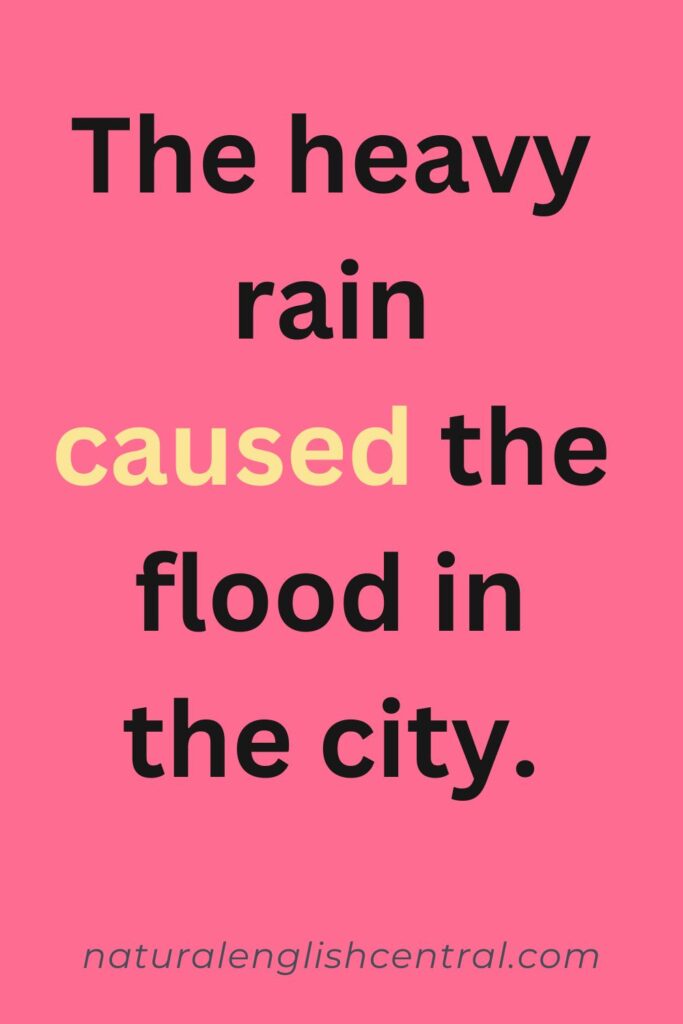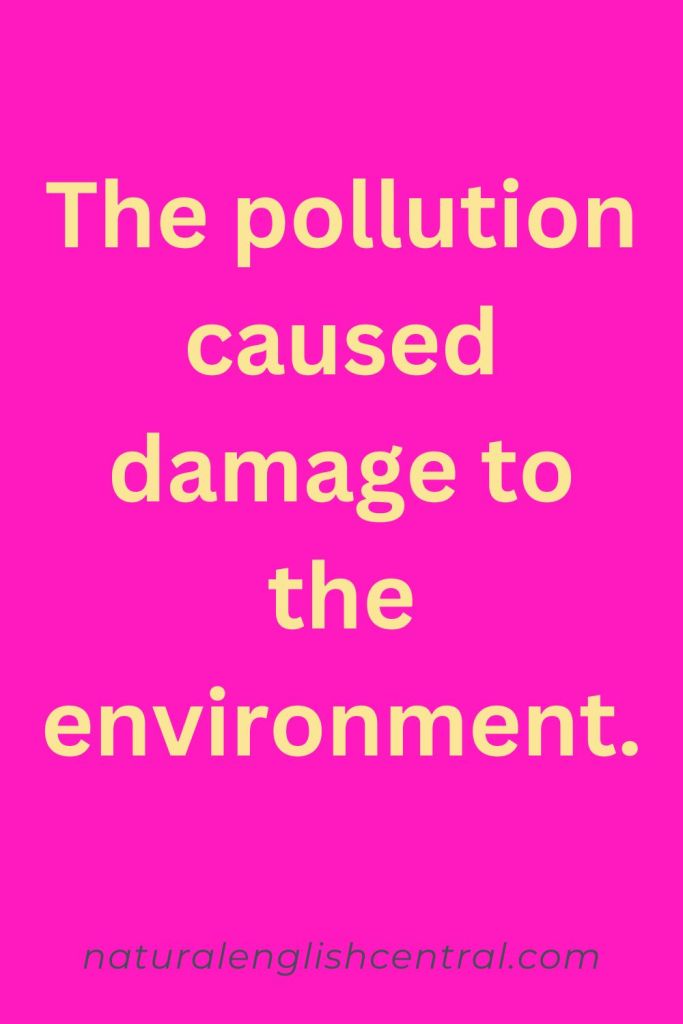Today we are going to check out 45 sentences with cause, so we can see just how to use this word in natural English! Today, we will focus on the word “cause,” especially using it as a verb. It means to make something happen or bring about an effect. It is very common in English, and understanding how to use it will help you explain situations and actions clearly. We are also going to look at some examples of cause in a sentence that are nouns. Try reading and repeating these sentences to get comfortable with using “cause” in different ways. The more you practice, the more fluent you will become! The verb sentences will be in different tenses, so sometimes you will see cause, and other times caused.
Sentences with Cause
This is the first set of sentences with cause as a verb. Try reading them aloud and repeating them until you feel more confident. Practice will help you improve both your pronunciation and your ability to use “cause” in everyday conversations.
- The heavy rain caused the flood in the city.
- His actions caused a lot of confusion among the team.
- The new law will cause some changes in the system.
- Poor planning can cause problems for a project.
- The accident caused a delay in the train schedule.
- Lack of sleep can cause health issues.
- The fire caused major damage to the building.
- Her kind words caused him to smile.
- The noise from the construction site caused a disturbance.
- They caused a scene at the restaurant because of their argument.
Try saying these sentences several times. This will help you improve your fluency and understand how to use “cause” as a verb in different situations.
Related: 55 Sentences with Need: Better English

Meaning and Examples of Cause
The word “cause” is primarily a verb, but it can also be a noun. As a verb, it means to make something happen, to bring about an effect, or to lead to a result. It is often used to describe actions or events that lead to a specific consequence.
- Cause as a verb: “The cold weather caused the pipes to freeze.”
- Cause as a noun: “The cause of the accident is still under investigation.”
As a verb, “cause” is used to talk about events or situations that make something happen. It is often followed by a noun or a pronoun to explain what happened because of the action.
| Variant of cause | Example Sentence | What it means |
|---|---|---|
| Verb | “Her mistake caused the delay.” | Cause means to make something happen or result in something. |
| Noun | “The cause of the delay was unclear.” | Cause refers to the reason behind an event or action. |
“Cause” as a verb helps you explain the reason why something happens or the effect of an action.
Cause in a sentence
Now, let’s look at more examples using “cause” as a verb. These sentences will help you practice how to use “cause” in various contexts.

- The teacher’s instructions caused confusion among the students.
- The storm may cause power outages in many areas.
- The new medicine can cause some side effects.
- His poor diet caused his health problems.
- The company’s decision caused a lot of debate among employees.
- The loud music always causes the neighbors to complain.
- Their argument caused a lot of tension in the room.
- A lack of preparation caused the team to lose the game.
- The pollution caused damage to the environment.
- Her kindness caused a change in his attitude.
Notice that in these examples, “cause” is used as a verb to explain the reason behind different outcomes or situations.

Sentences with cause: as a Noun
When used as a noun, “cause” refers to the reason or reason for something happening. The noun form is used when talking about the source or origin of an event or situation.
- The cause of the fire is still unknown.
- They worked together for a common cause.
- The cause of the problem was a broken pipe.
- Climate change is a cause of many environmental issues.
- The cause of the delay was bad weather.
- He joined the protest for a good cause.
- The cause of the disagreement was a misunderstanding.
- Education is a cause that she strongly supports.
- The cause of the accident was careless driving.
- The cause of his success was hard work and dedication.
As a noun, “cause” is often followed by a description of what caused the event or situation, such as “cause of the problem” or “cause of the accident.”
Conversation Questions with Cause
Now that we’ve practiced many examples, let’s move on to conversation questions. These questions will help you practice using “cause” both as a verb and as a noun. Try to answer them fully to practice your English. Don’t worry if you have no experience with a particular question, just try to use your imagination to answer it.
- What do you think can cause stress in your life?
- What caused you to start learning English?
- Can you think of an event that caused a big change in your life?
- What causes problems in a team at work?
- What causes people to argue?
- What is the cause of their disagreement, do you think?
- What was the cause of the last argument you had?
- What actions can cause long-term consequences?
- What causes you to feel motivated?
- What do you think is the main cause of environmental issues?
- What caused that storm?
- What could cause a person to change their mind about something important?
- What causes a person to succeed in their career?
- Can you think of a time when you caused a misunderstanding?
- How do you think technology has caused changes in our daily lives?
Try to answer each question fully. This practice will help you improve your fluency in English and understand how to use “cause” in different situations.
Paragraph with the Word Cause
Here’s a short fictional paragraph that uses “cause” several times. Feel free to use this as inspiration for any writing projects you have.
“Sarah was wondering what had caused the sudden change in the weather. The rain started pouring heavily, and she realized that the cause of the storm was the cold front moving in from the north. She had never seen such a dramatic shift before. As the rain caused traffic delays, Sarah decided to stay indoors for the rest of the day. She understood that nature could cause unexpected surprises, and she had learned to be prepared for them.”
This paragraph shows how “cause” can be used in both verb and noun forms. You can use it to explain the reason behind an event or situation.
Sentences with Cause: Practice Your English Accuracy
I hope you have enjoyed reading through and repeating all of today’s sentences with cause! Learning how to use the word “cause” is very useful if you are studying English. It helps you explain the reasons behind events, actions, and outcomes. Being able to use “cause” correctly will make your speech and writing more accurate and natural. Practice these sentences often, and try using them in your conversations to sound more fluent. The more you practice “cause,” the easier it will be to explain situations and understand the reasons behind things in English. Keep working on your accuracy, and you’ll improve over time.

